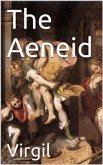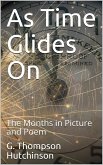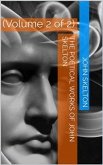The Georgics is a poem by Latin poet Virgil, likely published in 29 BC. As the name suggests the subject of the poem is agriculture; but far from being an example of peaceful rural poetry, it is a work characterized by tensions in both theme and purpose. The Georgics is considered Virgil's second major work, following his Eclogues and preceding the Aeneid. The poem draws on a variety of prior sources and has influenced many later authors from antiquity to the present. The work consists of 2,188 hexametric verses divided into four books. The yearly timings by the rising and setting of particular stars were valid for the precession epoch of Virgil's time, and so are not always valid now.
Bitte wählen Sie Ihr Anliegen aus.
Rechnungen
Retourenschein anfordern
Bestellstatus
Storno









